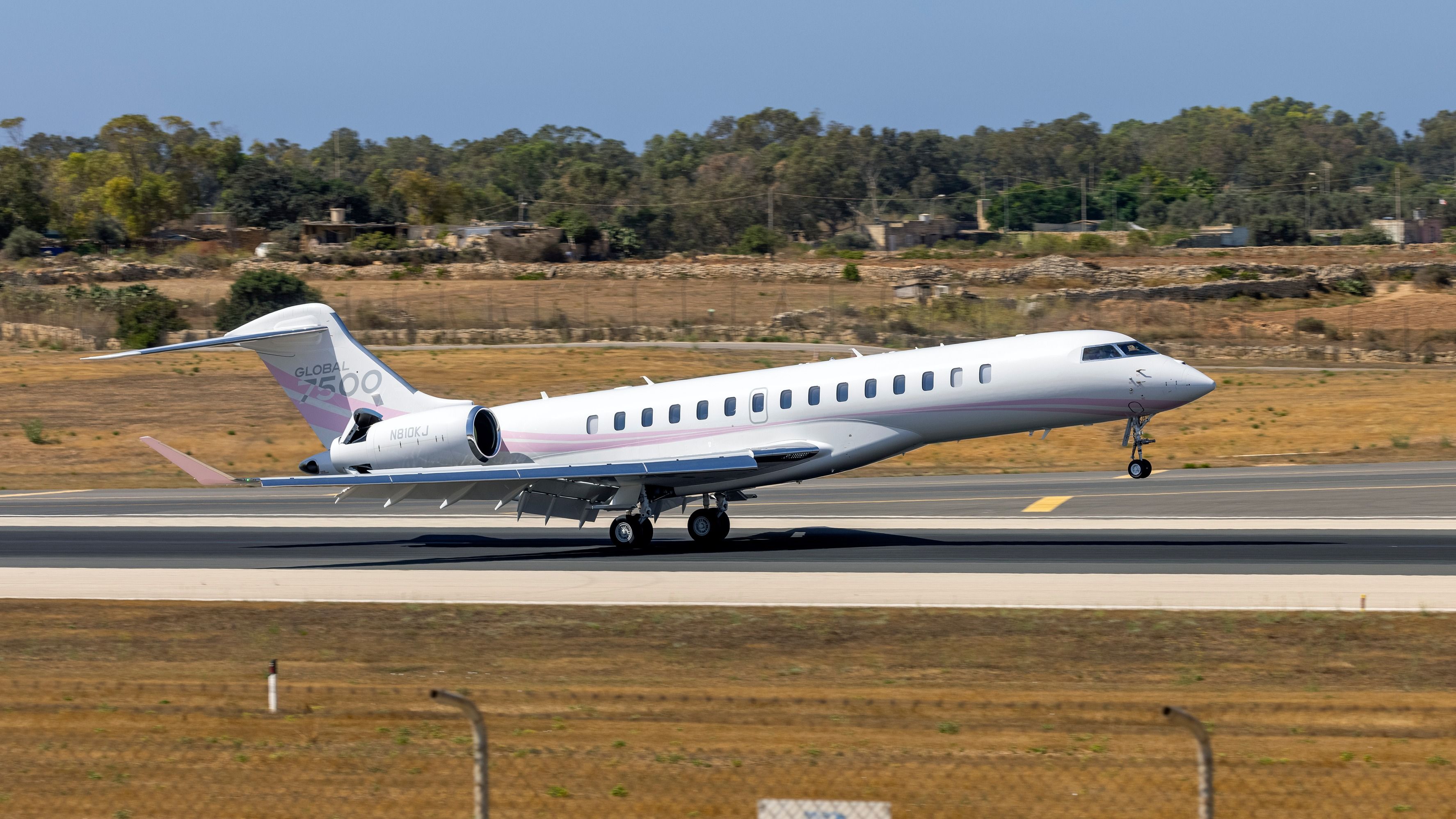Pre-pandemic, Malta International Airport saw over seven million passenger movements. Handling some 97.5% of all inbound tourists arriving in Malta, this is clearly the primary facility for the tiny island nation of 525,000 inhabitants. However, despite the country's small size, Malta's aircraft registry lists far more airplanes than its relatively small international airport could handle on a regular basis- jets from Austria's Lauda and Portugal's Hi Fly are included. But is this the case?
A reputable registry
Listing an aircraft under a certain country's aircraft register means that those planes are held to that country's air regulations. So, while a Russian Aeroflot Airbus A350 might mainly operate in and out of Moscow, its place on the aircraft registry of Bermuda holds it to Bermudan standards and regulations.
According to charter and aircraft management firm Air CM, "the Maltese aircraft register holds its operators to some of the highest levels of regulation in the world," as it falls under European Union Aviation Safety Agency (EASA) jurisdiction. This, the firm says, offers aircraft owners peace of mind, with its ICAO rating as a "testament to the stringent standards of safety and security."
Of course, if you know anything about international business, you'll know that's not the primary reason some non-Maltese airlines register some or all of their fleets in Malta...
All about the taxes (and subsequent cost-savings)
In addition to competitive aviation registration costs, KPMG Malta highlight's the Maltese authority's "practical understanding of the aviation sector and favorable corporate structures." In summarizing Malta's aircraft registry as a financially beneficial destination, let's examine a few of KPMG Malta's reasons for registering an aircraft in the country: Aircraft temporarily not being operated or managed can be registered here:
- Malta's aircraft registry recognizes fractional ownership interests of aircraft - "Innovative aviation arrangements" - including the possibility to register aircraft under construction;
- An extensive Maltese tax treaty network with over 70 jurisdictions, including the United States;
- No withholding tax on lease payments where the lessor is not a tax resident of Malta;
- Attractive direct and indirect aviation tax opportunities for leasing of aircraft, including tax depreciation, and partial shareholder tax refunds;
- Competitive tax depreciation rates for aviation purposes, and partial shareholder tax refunds;
- No restrictions on the nationality of shareholders and directors of Maltese aviation companies.
A final reason cited by a number of sources is that Malta is a signatory to the Cape Town Convention on International Interests in Mobile Equipment and its Aircraft Protocol. A mechanism to set international standards for leases, security interests, and registration of contracts, this offers creditors a higher degree of protection and more effective remedies, while, at the same time, allowing lower borrowing costs.
Stay informed: Sign up for our daily and weekly aviation news digests.
Which airlines register aircraft in Malta?
Some of the more notable commercial operators we currently see registering their aircraft in Malta are Hi Fly, Corendon, SmartLynx, as well as Ryanair subsidiaries Lauda Europe and Malta Air. Although Malta Air does obviously operate service to Malta, this is only a small portion of its 140+ aircraft.
Lufthansa Group subsidiary Eurowings soon hopes to take advantage of Malta's aircraft registry too. According to Malta Independent, the move will include the application for an Air Operator Certificate in the country. However, a Eurowings spokesperson was clear about the tax implications associated with the business decision, telling Malta Independent the following:
“The complex double taxation in Austria has been a disadvantage for Eurowings Europe crews for years. Currently, regardless of the individual's place of residence and country of employment, most of the wage taxation falls to the country in which the airline's legal domicile is located - in our case, Austria. However, the majority of our Eurowings Europe employees live in Spain, the Czech Republic, Sweden, etc. The problem of double tax returns and complex accounting processes would increase with each new base opening (Prague, Stockholm, etc.). Eurowings Europe must eliminate these disadvantages in competition (also in recruiting)...It is therefore explicitly"not about tax avoidance, but about taxation in the respective country of employment.”
So did you know about Malta's aircraft registry as a tax and business-friendly destination? Let us know by leaving a comment.

